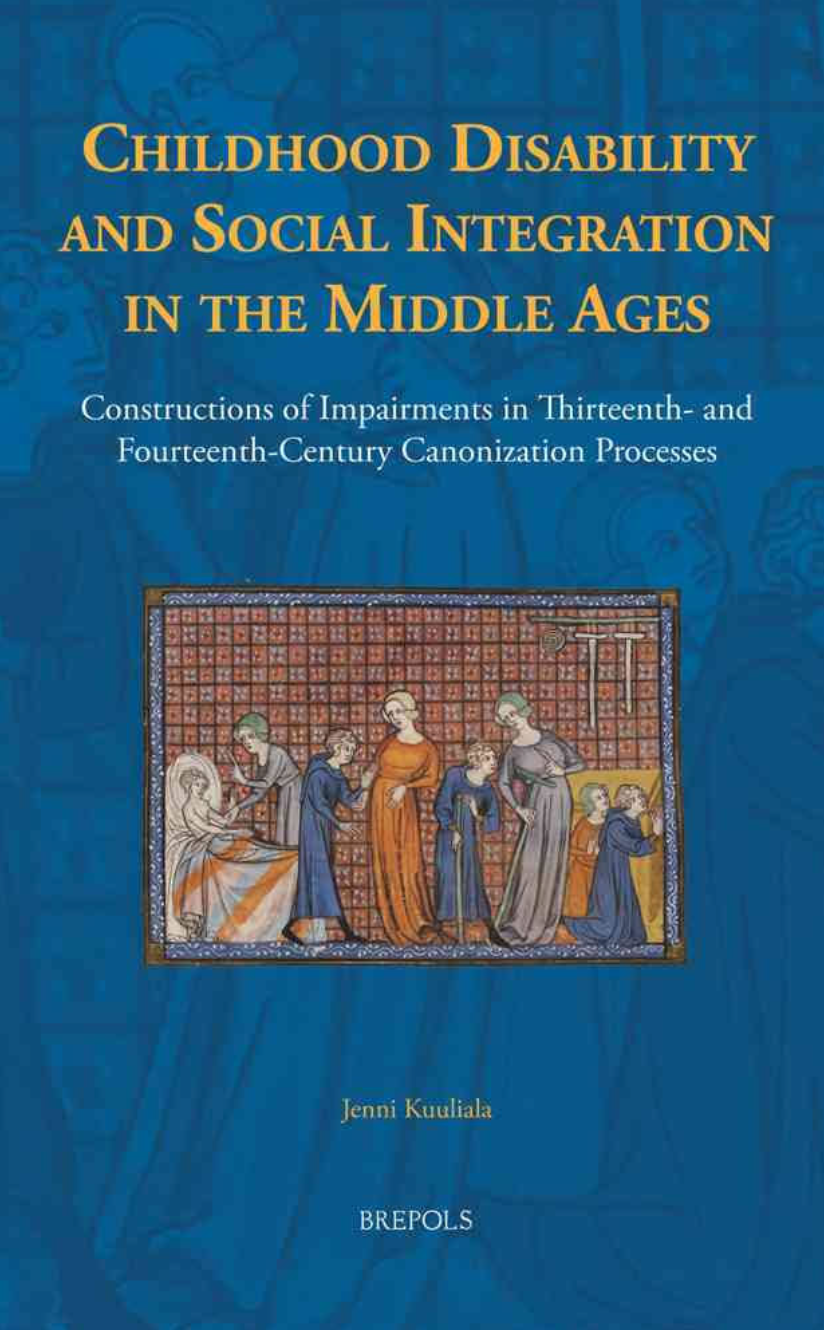You can listen to the interview with April Robertson here!
Many thanks for having us, April!
You can listen to the interview with April Robertson here!
Many thanks for having us, April!
Last week, the Malta Classics Association hosted its first annual conference of contemporary classics research. None other than our very own Christian Laes opened the conference with an inspiring lecture on disabled children in Antiquity. You can rewatch his presentation here!
SAVE THE DATE: 19 - 21 April, 2021
“Recent years have seen a surge in the number of scholarly debates dedicated to the history of disability, which aim to reposition the modern understanding of disability by placing the concept in cultural-historical, political, and social contexts. The guiding contention of such studies is that disability is not merely an individual ailment but a social construct, which in turn sheds light on the cultural values of a given society. On the Sinological sphere, several important studies were published which focus on specific bodily or cognitive impairments; yet so far, no effort has been made to juxtapose the different findings and understand what, at large, constitutes ‘disability’ in early China. This workshop will bring together academics to discuss this question and examine topics relating to disability and bodily impairment in early and medieval Chinese history, with an eye on their socio-political implications.”
Contact Dr. Avital Rom: ahr33@cam.ac.uk

Are you #disabled #neurodiverse in ancient studies? Cripantiquity wants to amplify your story!
CripAntiquity is an international advocacy organization for disabled and neurodiverse students, teachers, scholars, staff, artists, and writers in ancient studies. Our mission is to combat ableism by amplifying disabled and neurodiverse perspectives; creating resources that will empower individuals and transform institutions; and fostering community among our members.
Check out their site: cripantiquity.com
Twitter: @cripantiquity
Social distancing has been implemented worldwide during the COVID-19 pandemic. People from all over the world are staying at home and avoiding all contact with others. How do we get here? How did the exclusion of particular human beings become the (new?) norm? Searching for answers, the Dominican multimedia artist María Batlle traces the origin of the concept of disability. Here you can read her interview with one of the greatest experts on disability within the ancient world, Christian Laes.
“The evidence for ramps and their use has been there all along, but archaeologists haven’t paid much attention to it, argues Debby Sneed, an archaeologist at California State University, Long Beach.”
Discover more about the intriguing possibility of ramps for disabled people in Antiquity!
Below you can find the link to the most recent episode from the popular Byzantium & Friends podcast series, hosted by Anthony Kaldellis. Christian Laes talks about disability in Byzantium. How did people cope with their disabilities? What social consequences did it have and how is it represented in texts? The conversation is based on a number of articles by Christian, whom Kaldellis called 'a pioneer' for this field of study.
January 31, 2020: Experts from all over the world gather in Manchester to exchange knowledge on intellectual disability in the ancient world, resulting into intriguing lectures ranging from Arabic medicine to the Corpus Hippocraticum as well as explorations of legal and bioarchaeological evidence. This fascinating material offers us crucial insight into ancient views on disabilities. Thus, definitely worthy of further scholarly attention!
To be continued!

Groundbreaking book about disabilities and Roman law by Santiago Castán Pérez-Gómez!
On Friday the 31st of January 2020, a small group of invited scholars will unravel the last disability which has not yet extensively been dealt with for the ancient world: intellectual disabilities.
Welcome to the CAHAE department of the University of Manchester if you want to find out about this fascinating and intriguing topic!
Click here to find out more!
Interesting article by Annie Sharples on the effect having a disability has had upon her research into Ancient Disability.
Read it here: https://eidolon.pub/disabling-ableism-in-classics-4fd28d02c628

New monograph by Christian Laes 'Disabilities and the Disabled in the Roman World - A Social and Cultural History'!
This book, the first monograph on the subject in English, explores the medical and material contexts for disability in the ancient world, and discusses the chances of survival for those who were born with a handicap.
Find out!
Written for and by people with disabilities, deafness, or mental debility: a bibliography through four millennia, with introduction and partial annotation.
Edited by Cordula Nolte, Bianca Frohne, Uta Halle, Sonja Kerth

Edited by Christian Laes. This volume is a major contribution to the field of disability history in the ancient world with contributions from leading international scholars.
Link: Disability in Antiquity
On stories and histories of mental health ancient world to contemporary.
Check it out: http://chiara-thumiger.net/#home-sectionhttp://chiara-thumiger.net/#home-section

Monograph by J. Kuuliala!
Link: 'Childhood Disability and Social Integration in the Middle Ages'


Monograph by Lisa Trentin!
Sign up to receive the latest news!